|
This episode of Dig-In is focused on learning more about the 5th Cohort of FS6 entrepreneurs - and diving into some of the issues that they are addressing through their innovations. About the cohort: Cohort 5 is largely focused on supporting the farmers, ranchers, producers, and do-ers that are the foundation of any sustainable food system. As part of this year's program, we are thinking more and more about the infrastructure necessary to implement and bolster sustainable solutions, and how to better take care of the employees that are on the ground running these businesses day-to-day. Read on to learn more. Join us on September 14th for our culminating forum event! This year's virtual forum event will serve as the kick-off session for the Regenerative Food System Investment Forum. During this 2-hour learning session, each of the Cohort 5 entrepreneurs will be given the opportunity to pitch their business and answer audience questions about their innovation. It is free to all so please register for the Innovation for Food System Impact session below to join us! For those of you interested in attending the full RFSI program, use discount code FS6-15 for 15% off the cost of attendance. Please note: the following content was originally written in early March, pre-COVID in the US. I have chosen to leave it fairly unedited because it really brings to light the degree to which the challenges we have faced over the past few months are not unique to the pandemic. COVID has illuminated the already-broken parts of our food system, and has brought unprecedented public awareness to injustices that have been taking place for generations. Now is the time to invest in a more healthy, just, and sustainable food future. MEET THE COHORT
Why these six entrepreneurs? Moonshots are all well-and-good but you can only get so far before you need to invest in the people building your rocket, and to make sure that there is a landing pad for when the chickens come home to roost. Mixed metaphors aside, this year's cohort is focused on providing support to the unsung heroes of the future food economy and to bring awareness to the widening lack of infrastructure and boots-on-the-ground support for those that are prioritizing the transformation of our food system towards one that prioritizes healthy, sustainability, and justice. Learn more about it: Surprised to see animal agriculture in the line-up? Regardless of where you stand on the issue of animal-free meat vs regenerative agriculture, it is important to understand that industrial-scale meat production still makes up a vast majority of global consumption (feedlot meat alone accounts for 80% of the meat produced today). If we are going to decrease this footprint, we must identify alternatives that support the vision we have for a more sustainable food system - this means animal agriculture that is practiced in such a way that it increases the vibrancy of the ecosystem and respects the life of each animal - and each human worker! Let's talk more about regenerative agriculture: Regenerative agriculture is still an emerging sector with a lot of buzz percolating at the surface. Having been a somewhat fringe movement up until recently, we are increasingly seeing bigger players hop on board - most recently, Patagonia Provisions, Dr. Bronners, and the Rodale Institute launched a Regenerative Organic certification to help quantify the net positive impacts of this style of animal husbandry; General Mills announced that it would apply regenerative farming practices to 1-million acres by 2030; and the Savory Institute is rolling out their Ecological Outcome Verified certification for regenerative farmers and ranchers. These big names aside, there are many small ranchers that have been prioritizing these practices for years as a means of reviving rural economies, replenishing local ecosystems, and rebuilding resiliency into our farming communities (see: Central Grazing Co). As we continue to focus on how best to steward the animals that we are raising, many companies are prioritizing unique methods for whole animal utilization to decrease waste streams and increase the value proposition for ranchers looking to shift towards regenerative practices (see: Keller Crafted Meats). Chipping away at the infrastructure of industrial meat is going to take innovation for omnivores, vegans, vegetarians, flexitarians, climatarians, and more - regenerative ranching is another tool in our tool-kit as we work towards a more sustainable food future. Small to mid-sized processing infrastructure: One of the key barriers to scaling regenerative solutions and overcoming the outsized power that industrial-scale meat holds over our food system is the lack of processing infrastructure for small to mid-sized farmers and ranchers. Currently, some 80% of animals processed in the US are processed by the Big Four meatpackers. This means that ranchers who have dedicated their work to prioritizing best practices around animal welfare, land stewardship, and carbon sequestration have fewer and fewer options for processing their animals. Due to shrinking numbers (there are currently only about 750 small and very small USDA processing plants in the US), ranchers have to travel further and further to process these animals. As of last year, the average travel time for a rancher taking their cows to slaughter is 6.7 hours. This space is ripe for innovation and we are seeing more people focusing on these issues every year (see: Revel Meat Co). Has all of this piqued your interest? Here are some resources for further exploration:Speaking of decreasing waste: We are not in the business of trend prediction at FS6 but if we were, we would point out the quickly-growing group of startups and solutions focused on repurposing food waste into healthy alternatives as a marker of changing tides. You have probably already heard the statistic that, if food waste was a country, it would be the third largest greenhouse gas emitter; and that over 30% of produce grown is left on the farm to rot. Well, a growing number of the innovations in this space are focused on consumer-focused products - but there are fewer options for institutional foodservice providers to join the effort. We see this as a unique gap in a quickly growing industry and, as such, are excited to be supporting innovators working to build sustainability into the $3.4 trillion (and growing) foodservice industry (see: Matriark Foods). Next up, people-first practices and cooperative ownership models: One of the most interesting shifts we are seeing is a revival in the focus on alternative ownership models and people-focused practices for impact-driven businesses. Ranging from hiring models that support those with higher barriers to employment (see: Firebrand Artisan Breads) to cooperative ownership models that put more power in the hands of the people on the ground growing our food (see: Farm Generations Cooperative). We are witnessing a shift in focus for food and agriculture businesses as they turn to practices that support the long-term health of their communities and building wealth locally. A few important things to know about worker-owned businesses: The cooperative ownership model is far from new - in fact, in 2014, 134 agricultural cooperatives alone were celebrating their 100-year anniversary! However, in the world of "move fast and break things," employee ownership is often overlooked. We believe that it is time to invest in building longevity and stability into local food communities and that these alternative ownership models are an important part of that transition. Here are a few interesting facts about worker ownership:
What's the solution? At FS6 we believe that complex problems have multifaceted solutions. In an effort to build towards a healthier, more just, and sustainable food system, we will continue to build cohorts that are focused on systems-based solutions to the myriad of complex problems faced by food system entrepreneurs. For Cohort 5, that means supporting innovations focused on small to mid-scale regenerative infrastructure, alternative ownership models and other pathways for prioritizing the wellbeing of the people that make up the food system, and continuing to find new ways to utilize the waste streams associated with this industry. To learn more about these solutions, join us on September 14th for "Innovation for Food System Impact" at the Regenerative Food System Investment Forum! The Dig-In series is a newsletter series dedicated to taking a closer look at some of the many facets of food system change, topic-by-topic. This format will provide you with expert opinions, resources, and guides to better understand some of the most crucial elements of an often opaque, and deeply complex industry. You can read the previous installment, "Digging-Into Values-Based Purchasing," here.
Comments are closed.
|
FS6 is a nonprofit based in the San Francisco Bay Area whose mission is to support impact-driven entrepreneurs as they transform how we grow, produce, and distribute food. The organization runs a comprehensive accelerator program that mentors entrepreneurs by coaching them through a wide range of business and organizational needs. FS6 also works to educate stakeholders on the unique capital needs as it relates to redefining the food system. Categories
All
Archives
August 2021
|


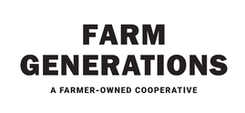
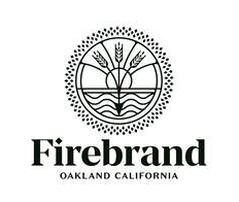
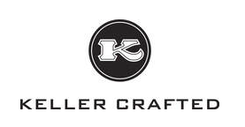
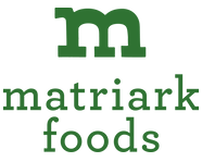
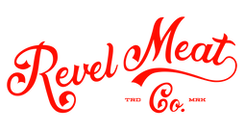


 RSS Feed
RSS Feed
